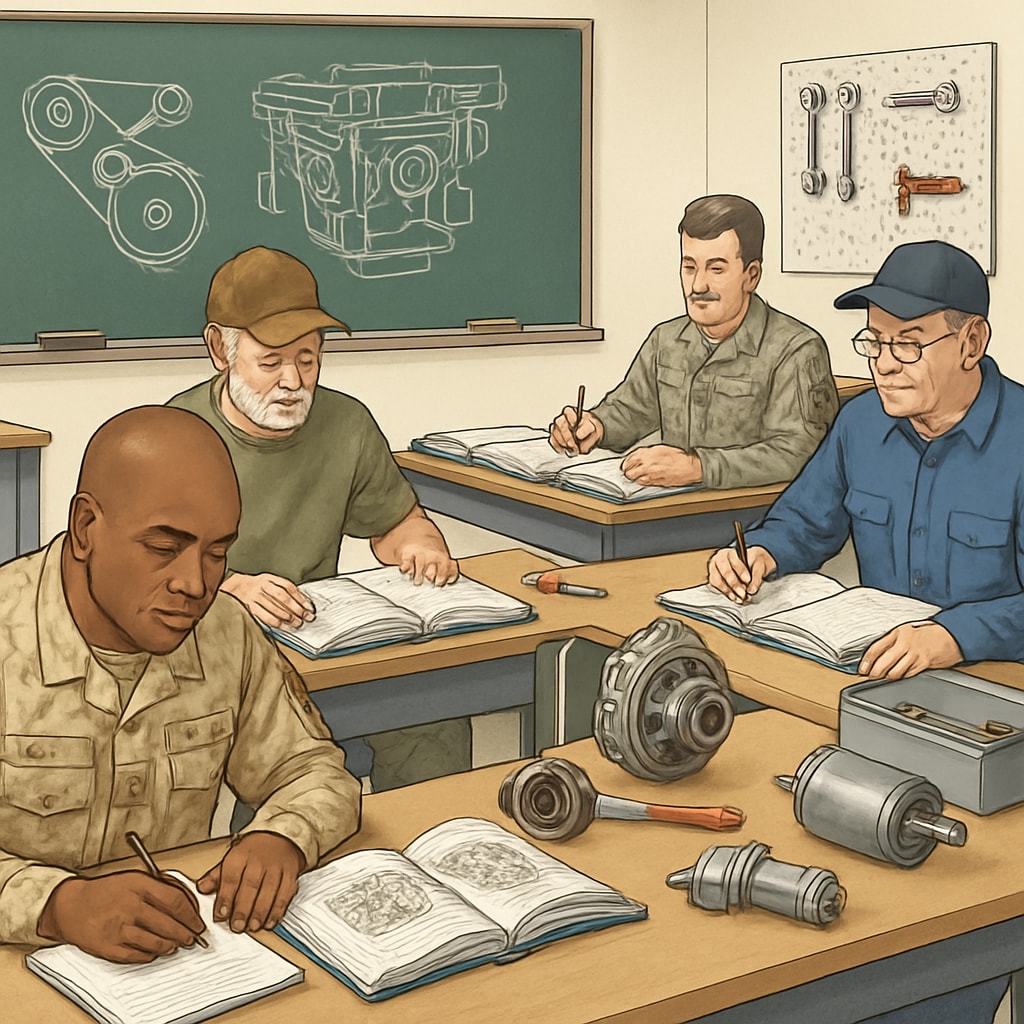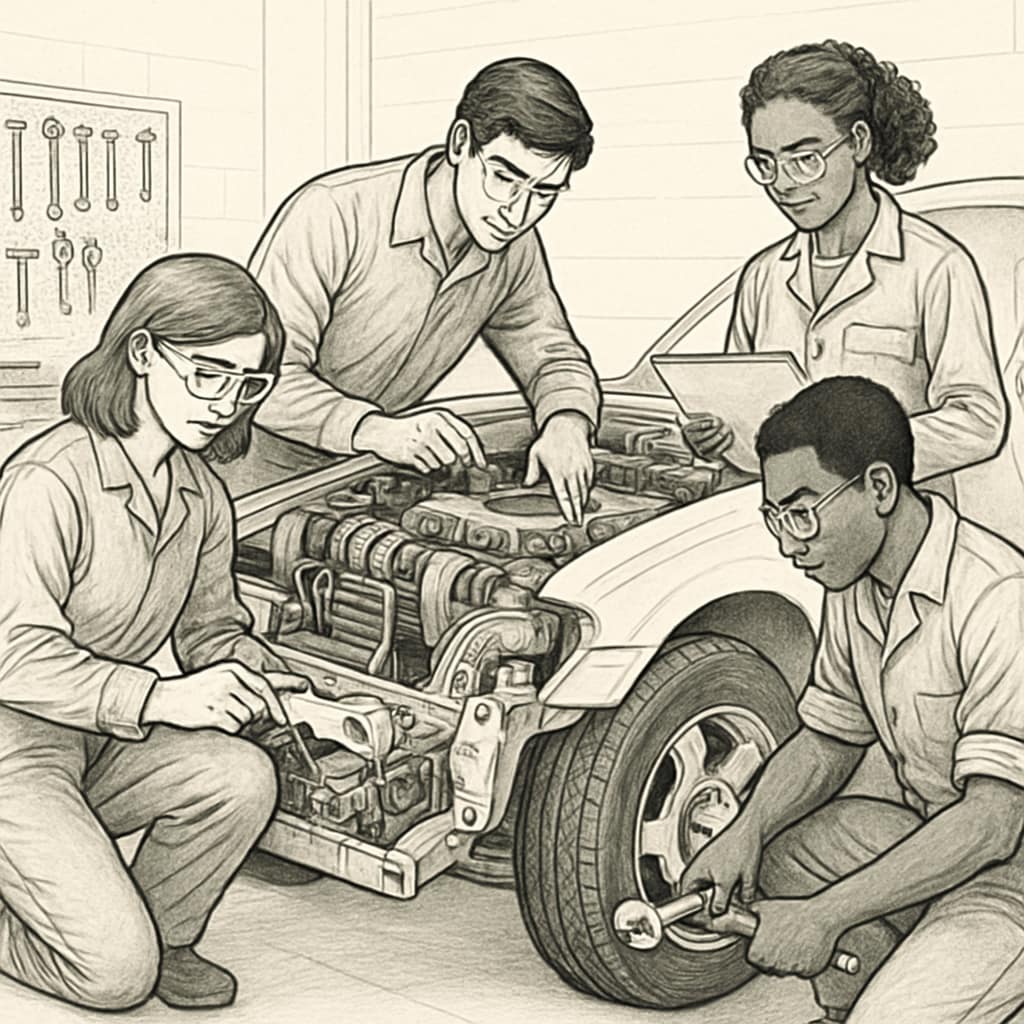Veterans holding an associate degree in automotive technology often wonder how to transition to a bachelor’s degree to enhance their career prospects. Understanding the best academic pathways, credit transfer processes, and potential fields of study can ensure a smooth and rewarding educational journey. This article delves into the most compatible bachelor’s degree options for automotive technology graduates, offering guidance to make the most of their prior education and military experience.
Why Transitioning to a Bachelor’s Degree Matters
While an associate degree in automotive technology provides foundational skills, a bachelor’s degree can open doors to more advanced career opportunities, including management roles, engineering positions, and teaching opportunities. For veterans, pursuing higher education can also ease the transition into civilian life, offering both professional growth and personal fulfillment.
In addition, many industries today value candidates with a mix of technical expertise and broader competencies, such as leadership, problem-solving, and communication skills. A bachelor’s degree program can help develop these abilities, setting veterans apart in a competitive job market.

Key Considerations for Credit Transfers
The process of transferring credits from an associate degree to a bachelor’s program is crucial for saving time and resources. Veterans should keep the following factors in mind:
- Accreditation: Ensure that both the associate degree and the prospective bachelor’s program are accredited by recognized institutions.
- Program Compatibility: Select a bachelor’s program that aligns closely with automotive technology to maximize transferable credits.
- Military Experience: Many institutions offer credit for military training and experience, which can further reduce the time required to complete a degree.
- Advising Support: Work with academic advisors to understand articulation agreements (formal agreements between schools) and ensure a seamless transition.
For more details on credit transfer policies, visit resources like the American Council on Education, which provides guidance on translating military experience into academic credit.
Top Bachelor’s Degree Options for Automotive Technology Graduates
Choosing the right bachelor’s degree depends on individual career goals and interests. Below are some of the most compatible degree options for those with an automotive technology background:
- Automotive Engineering: Ideal for those wanting to delve deeper into vehicle design, manufacturing, and performance optimization.
- Mechanical Engineering: Offers a broader scope, covering principles applicable to various industries beyond automotive.
- Business Administration: Perfect for aspiring managers or entrepreneurs planning to run their own automotive-related businesses.
- Industrial Technology: Focuses on the application of technology in manufacturing, quality control, and systems management.
- Education: For veterans interested in teaching automotive technology at the high school or technical college level.

How to Choose the Right Program
With numerous options available, selecting the right bachelor’s program can feel overwhelming. Here’s a step-by-step guide to simplify the process:
- Define Your Career Goals: Determine whether you aim to stay in the automotive field or branch into related areas like engineering or business.
- Research Schools: Look for institutions known for strong automotive or engineering programs, such as the Michigan Technological University.
- Evaluate Flexibility: Consider online or hybrid programs that accommodate work or family commitments.
- Assess Costs: Utilize resources like the GI Bill to minimize out-of-pocket expenses.
- Seek Alumni Insights: Connect with program graduates to gain firsthand insights into the curriculum and career outcomes.
Conclusion: Maximizing Your Educational Investment
Transitioning from an associate degree in automotive technology to a bachelor’s degree is a significant step that can redefine your career trajectory. By focusing on credit transfer opportunities, aligning your education with career goals, and selecting a program designed for veterans, you can maximize the value of your prior learning and military experience. Take the time to explore your options, and you’ll be well on your way to achieving both professional success and personal fulfillment.
For veterans ready to take the next step, the journey from automotive technology to a bachelor’s degree is not just about education—it’s about unlocking a future filled with opportunities.


